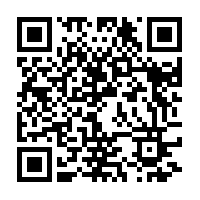There are several things that don’t require much effort, such as blinking your eyes, flipping through TV channels or getting your wires crossed. This last one, though, despite being entirely effortless may generate much effort later on, when you’ll have to undo the damage done.
In order to get your message across in a straightforward manner it may be useful to get to know the limitations of modern day means of communication.
Check out: How to Avoid Virtual Miscommunication
Listen
Glossary
- glean – extract (information) from various sources
- construe – interpret (a word or action) in a particular way
- affirm – state as a fact; assert strongly and publicly
- in (or out of) synch – working well (or badly) together; in (or out of) agreement
- curt – rudely brief, Curt is more deliberately unfriendly, suggesting brevity and coldness of manner
- brusque – Brusque, which comes from an Italian word meaning rude, describes an abruptness of speech or manner that is not necessarily meant to be rude
- offload – unload (a cargo), relieve oneself of (a problem or worry) by talking to someone else
Think about it
Based on the text answer the questions below.
- What causes virtual miscommunication?
- Why can an exclamation mark be misleading?
- What is meant by the “illusion of transparency?” How can it be counteracted?
- In what way can it be helpful to know other people’s communication styles?
- What is signal amplification bias and how can it be avoided?
- What is meant by “the medium is the message”?
Practice makes perfect
In the sentences below replace the phrases in bold with the expressions from the original text.
- Think about the information you can collect just from the seating arrangement in a physical conference room [. . .]
- Before sending an important e-mail, ask someone else to read it just to make sure it won’t be misinterpreted.
- All those hints are missing in a typical teleconference.
- Knowing communication style prevents misunderstanding someone’s rudely brief e-mail as annoyance or anger if you’re aware of his typical rudeness.
- Unfortunately, sloppy e-mails at best require wasting time trying to figure them out, and at worse lead to workplace misunderstandings and costly errors.
Fill in the blank spaces with the missing words. You can only put one word in each blank space.
Finally, encourage everyone to expect problems. ______ the start of any virtual project, experts recommend a “meta communication” of basic guidelines, such ______ how quickly people should respond to e-mails and what media should be used ______ which purposes (for instance, all team meetings will take place through videoconferencing). A major component of that document, according to Pam Brewer, a professor at Appalachian State University, should be ______ mechanism for resolving ______ communication problems as the volume of e-mail becoming unmanageable. Setting the expectation that there will inevitably be problems makes everyone much less hesitant to raise an issue. ______ fact, the team leader could emphasize that point ______ adopting the attitude of, “If no one has any communication issues, it’s a sure sign that we really ______ have problems.”
Explore it more
(1104)
Podcast: Play in new window | Download





